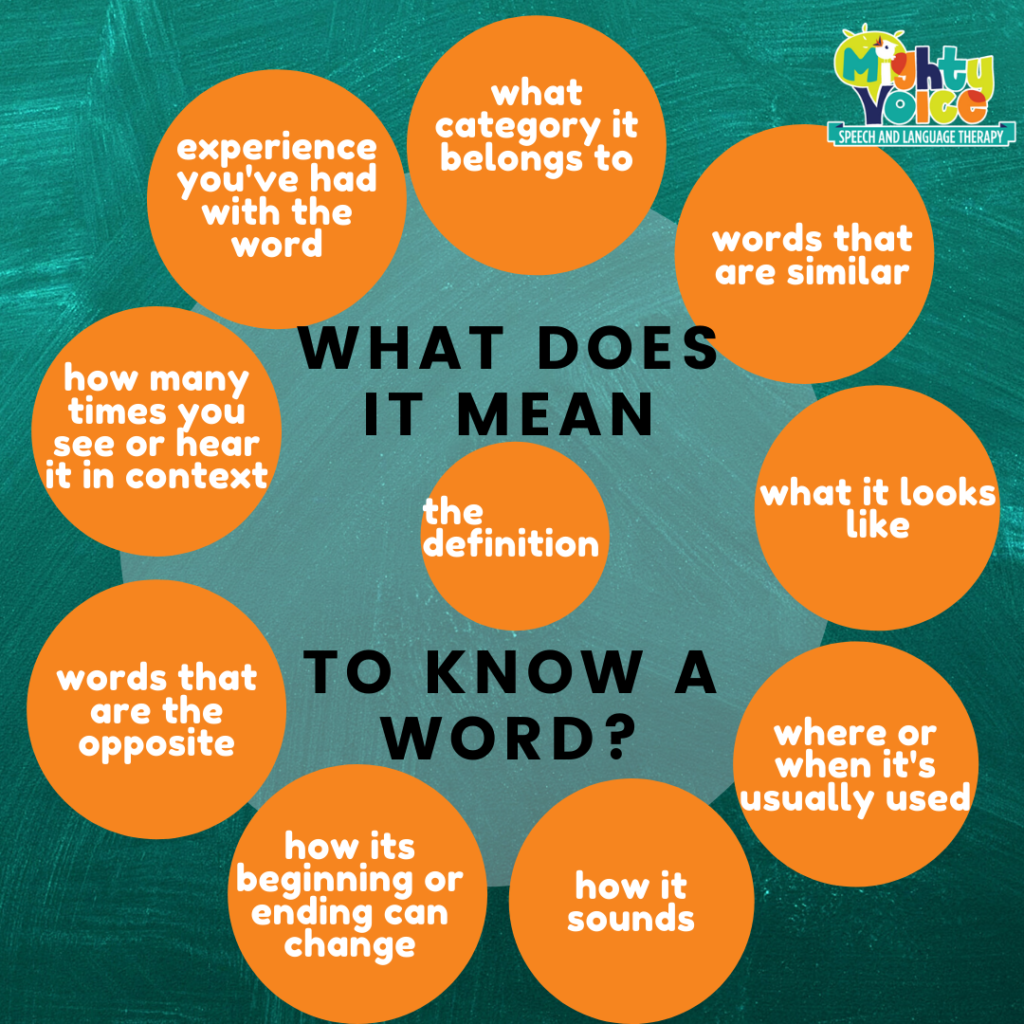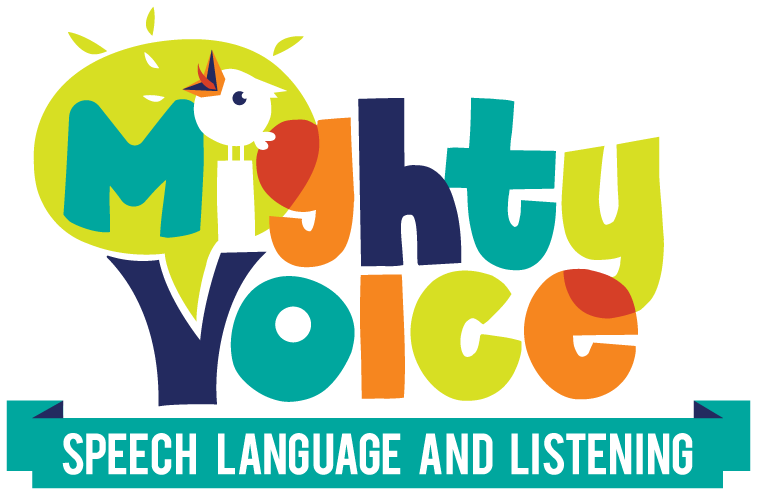
When you have a child with a speech and language delay, or a kiddo who is deaf or hard of hearing, you know that learning new vocabulary is important. The more words you know, the more your child can say, understand, read, write, etc.
But what does it mean to really know a word?
Just a Definition Isn’t Enough
I remember “learning vocabulary” in school, which often meant looking up the dictionary definition, and maybe drawing a line to match the word to its 1 sentence of phrase definition.
But, when we say we know a word, there’s so much more to know than just the 1 sentence definition. Let’s do an exercise together…think about everything you know about the word “coffee” (one of my favorite words!).

You could probably recite a dictionary like definition…coffee is a drink made from coffee beans, or something along those lines. But, that would be a really limited view of what you know about that word.
Deep Vocabulary Knowledge
You probably also know the “category” coffee is in–it’s a drink. And you might know other members of that category, or drinks that are similar–latte, cappuccino, mocha, etc. You know some things about the word “coffee” itself–what letters make up the word, what letters start and end the word, that there are double “ff”s in the middle.
You probably also know some descriptions about coffee–you know that it can be hot or cold, that it is usually brown and can be lighter or darker depending on who brews it. You probably also have some experience with coffee–you’ve smelled it being brewed, maybe heard beans being ground, or experienced the sensation of coffee on your lips and tongue.
If you enjoy coffee (or are reliant on it, lol), you probably also know the process of making it–that you buy beans, either ground already or to grind at home, that you need some sort of water and filter set up, and some sort of brewing equipment.

And, you have knowledge of how to use the word “coffee,” and to change how you use it depending on who you’re talking to and where you are. You might ask your partner to “Grab me some coffee from the kitchen,” but you wouldn’t use that same phrase at the local coffee shop. Instead, you would use more polite and specific language like “May I please have a tall coffee with cream?”
You also probably know something about how our culture views coffee-that it’s often thought of as a morning waking up drink, and used by parents as a symbol of being tired and needing a pick me up. You might know the iconic green and white coffee cup symbol used by a large national coffee chain.
Crumbs or a Feast of Knowledge?
That’s a lot of knowledge, right? So now think back to your child, or the children you work with. When they’re learning a new vocabulary word, are we just giving them the meagre dictionary definition? Just a little crumb of knowledge about the word?
Or are we giving them a feast of information? Are we giving them rich knowledge of other words that are similar or different, what category the word belongs to, and what kinds of describing words go with it? Are we letting them see the word written out, or giving them the opportunity to build it out of letters? Do they have any real world experience with it? If not, can we give it to them or at least let them read about it?
If you’d like some resources to help teach vocabulary more deeply, check out the vocabulary section of my TPT store. My resources focus on not just teaching the dictionary definition, but making connections, asking questions, using the words, and more.
